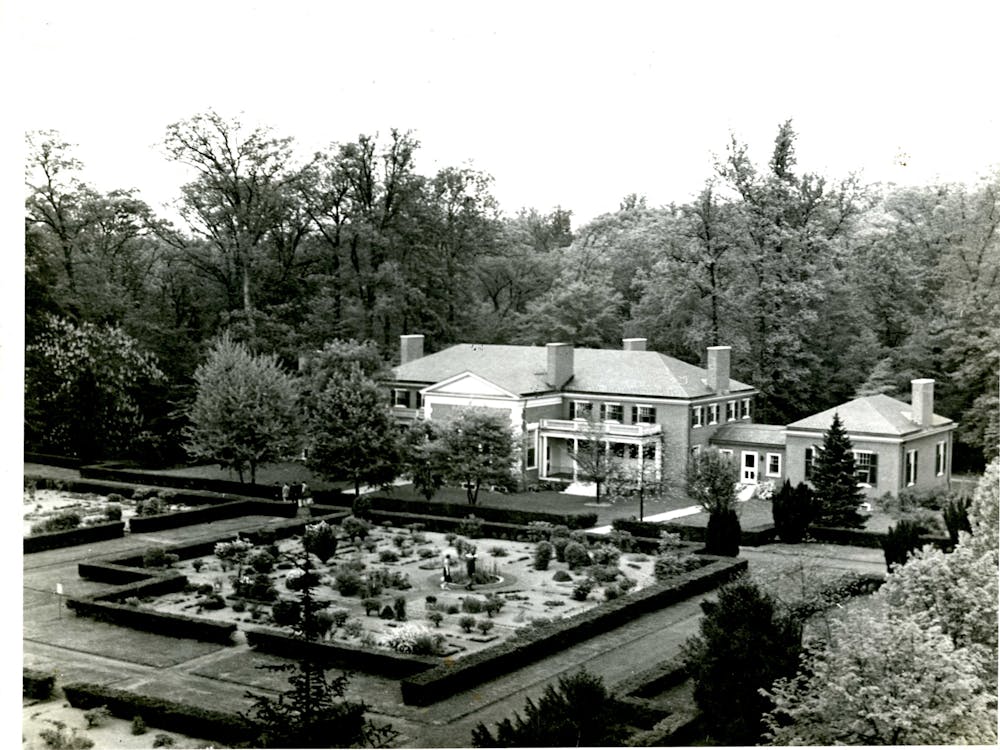The Body Project, a two-part workshop series sponsored by the Center for Health Education and Wellness (CHEW), began on Thursday in the Charles Commons Barber Room. The event was designed to help women improve their body image, gain self-esteem and discredit the notion of the “thin ideal,” which assumes that low body weight is a sign of beauty.
Attendees were encouraged to think about the power of the thin ideal and how this societal construct can negatively impact self-esteem. Students worked together to describe the features that society believes are descriptive of the perfect female body, an unattainable ideal to which many young women are taught to aspire. They suggested features like a narrow waist, a slender frame and a thigh gap. Together, they discussed how the thin ideal can lead to decreased self-esteem and a loss of self-confidence for young women.
Freshman Patricia Kim attended the event because she felt the subject was worth discussing.
“I decided to go to this event because I felt like it was a topic that is still very relevant to the lives of young adults and teenagers. I wanted to discuss with others what it meant to live in a world where we are buffeted with certain images and messages,” Kim said.
In a series of activities guided by student facilitators, attendees learned helpful ways to help reduce the power of the thin ideal and to encourage themselves and their friends not to believe in what they view as a harmful, unrealistic myth. One activity involved identifying ways to deal with “fat talk,” or comments made by friends about a girl’s weight due to her perceived failure to live up to the thin ideal.
According to Associate Director for CHEW Barbara Schubert, who coordinated the event, the goal of the workshop was to help increase female self-esteem and encourage students not to conform to the dangerous and unhealthy thin ideal perpetuated by the media.
“The aim of the Body Project is to help college-age women resist cultural pressures to conform to the thin-ideal standard of female beauty and reduce their pursuit of unhealthy thinness. Through peer-led discussions, the Body Project helps women feel better about their bodies by decreasing body negativity and increasing body confidence,” Schubert said.
Shubert believes the event was significant for the Hopkins student body because it encouraged body positivity that could spread throughout the campus and allowed a forum for open discussion about the negative effects of culture and society on female body image.
“The Body Project provides spaces for open discussion about unrealistic beauty ideals and the potential harm that pursuing those ideals can cause,” Schubert said. “The ultimate goal is for students to realize that true beauty comes in all shapes and sizes. The Body Project is not just an ordinary program — it’s truly culture changing, and that’s something everyone benefits from.”
Schubert described the Body Project as a part of CHEW’s overall mission of encouraging healthy habits in the Hopkins student body through active engagement and activities on campus.
“CHEW’s overall mission is to create a healthier campus by making the most of teachable moments to influence student health practices. Our vision is to create and sustain a learning environment where healthy behaviors are an integral component to academic and individual success,” Schubert said.
One of the event’s facilitators, Liana DiCredico, became involved with the Body Project because she feels that the thin ideal is dangerous for young women.
The Body Project, according to DiCredico, offered a special opportunity to engage with the serious issues of female body image and self-esteem, to prevent the development of serious mental disorders and to improve the overall health of the student body.
“Events such as the Body Project sessions encourage healthier lifestyles and can even help to prevent serious mental illnesses, such as eating disorders. Additionally, I believe that peer-led exercises lead to increased camaraderie amongst students,” DiCredico said.
While facilitating discussion at the event, DiCredico learned methods of combating society’s unrealistic expectations and ways to help fellow students and friends improve their self-esteem.
“I’ve learned specific strategies on how to combat the “thin ideal” in everyday situations and ways to empower my peers to be happy with their bodies just the way they are,” DiCredico said.
Kim said she also learned how to combat society’s unrealistic expectations for young women.
“[It] opened my eyes to how the media became a source of exclusion. It’s that simple: If you are tall and skinny, you’re in. If not, you’re out,” Kim said. “The interesting thing is that even models, who are supposed to be ‘in,’ are photoshopped. When this was brought up in discussion, I became even more horrified by the standards that the media is promoting. I learned that being healthy and happy is more important than achieving any body type. There is more to life than thigh gaps and prominent collarbones.”
Kim plans to attend the second Body Project workshop, which will be held at 6:30 p.m. on March 5 in the AMR I TV room.






















Please note All comments are eligible for publication in The News-Letter.